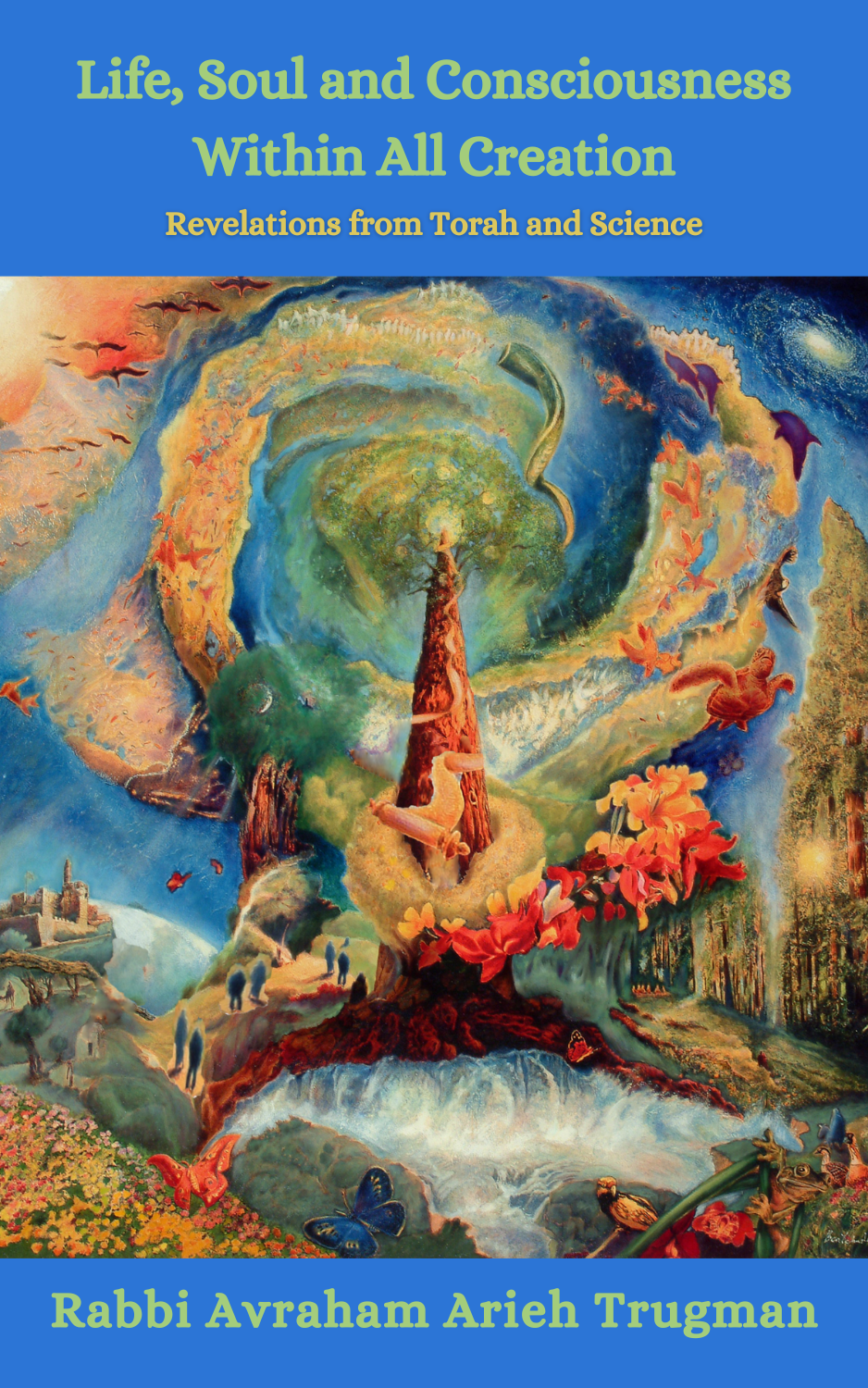“And he dreamt and behold a ladder was set [firmly] in the earth and its head reached the heavens, and behold, angels of God were ascending and descending on it. And behold, God was standing over him, and He said, “I am God, the God of Abraham your father, and the God of Isaac; the land upon which you are lying to you I will give it and to your seed. And your seed shall be as the dust of the earth, and you shall gain strength westward and eastward and northward and southward; and through you shall be blessed all the families of the earth and through your seed. And behold, I am with you, and I will guard you wherever you go, and I will restore you to this land, for I will not forsake you until I have done what I have spoken concerning you.” (Genesis 28:12). This archetypal dream of Jacob has a very interesting connection to the additional, musaf prayer, on both Rosh Hashana and Yom Kippur. At a very emotional part of the liturgy, the congregation calls out in unison that three spiritual activities can cancel a harsh judgment – teshuva, tefilla and tzedaka, repentance, prayer and charity. Above these three words in the prayer book are printed three other words in smaller print. Above teshuva is the word tzom, fasting; above tefilla appears the word kol, voice, and above tzedaka is the word mammon, money. All three of these words share the same numerical value – 136 – the same as sulam, ladder (when spelled with a vav). Each of these activities cancels harsh judgment and serve as special conduits, a virtual ladder between man and God. On closer inspection we discern that at the time of the dream and its aftermath, Jacob was involved in these three aspects and by extension the three actions represented by the three words equaling the word sulam, the ladder in his dream. Let us now look closer at these three spiritual pursuits – teshuva, tefilla and tzedakah – and the words written above them in order to understand better their connection to Jacob and his dream. Above the word teshuvah, repentence, is the word tzom, “fasting.” We do not know if Jacob had been fasting the day of the dream but we do know that his circumstances at that time were very conducive to his being ripe for introspection and teshuvah, and as we will see, to the concept of fasting, as he had just left all that he had known until then due to his escaping the wrath of his brother Esau. When he laid down that night alone, no doubt his mind and heart were in a state of existential introspection. Jacob was wrestling with a host of inner conflicts surrounding his leaving home and parents, his struggle with Esau, his apprehension of a new life and the reality of finding a wife and beginning a family. Even deeper he was contemplating his very mission in life in as much as before leaving home his father had blessed him: “And may God bless you, make you fruitful, and make you numerous, and may you be a congregation of peoples. May He grant you the blessing of Abraham to you and your descendants with you, that you may possess the land of your sojourns which God gave to Abraham” (Genesis 28:3-4). With this blessing, Isaac conferred upon Jacob his destiny and life’s work as the third of the Patriarchs. Teshuvah, which literally means “return,” is the process through which a person not only returns ever closer to God, but even deeper, returns to his or her own essential nature where one’s purpose in life is revealed. On the night of his dream we can envision all these thoughts swirling in Jacob’s mind and heart, a potent mix for teshuvah to occur.
The most important of all fast days in the Jewish calendar is Yom Kippur when we fast for a full 24 hours. It is the only Torah mandated fast day. Yom Kippur culminates the Ten Days of Teshuvah that begin on Rosh Hashanah. Later the Sages added four fast days to commemorate the destruction of the Temples in Jerusalem, as well as the fast of Esther immediately before the holiday of Purim. Yet, an individual may take upon themselves a fast day as a serious personal sign of wanting to do teshuvah. It is interesting to note that one of the actions that is recommended to alleviate the fear of a negative dream is to fast.
The next of our three spiritual activities that has the power to nullify strict judgment is tefillah, prayer, and its corresponding concept of kol, voice. The notion of kol is intrinsically connected to Jacob for when he stood before his father disguised as his brother Esau, Isaac remarked: “… the voice is the voice of Jacob, and the hands, the hands of Esau” (Genesis 27:22).
Before Jacob’s dream the Torah states: “And he came upon the place and slept there for the sun had set; he took from the stones of the place and placed them around his head, and he laid down in that place.” The Sages explain that the Hebrew word translated literally as “he came upon,” in this context, means “he prayed.” It is further written in the Zohar that the ladder in Jacob’s dream is a metaphor for prayer (Tikunei Zohar: 43). His prayer, recited at the beginning of the night, became the paradigm for the evening prayer in Jewish tradition. In a sense, the dream was a continuation and superconscious transformation of the content of his prayer. The ladder represents the voice of prayer rising from the heart of man who is firmly entrenched in the physical world below, till it reaches the heavens and God, who is ever present above the ladder. Through the words of prayer man’s consciousness rises from rung to rung, and although standing on the earth, his or her spiritual awareness is truly elevated to the heights of heaven.
Prayer has many forms and means of expression, for both the individual and the community. When King David declared: “And I am prayer” he was exclaiming that prayer is not something I do – it is who and what I am, it is a state of constant relationship and clinging to God. When Jacob dreamt of a ladder on that auspicious night, he was both consciously and unconsciously acting as a vessel through which prayer was revealed as the means to climb upwards, till standing humbly yet faithfully before God.
It is important to note that in Jewish law the words of prayer need to be enunciated and expressed in voice and not recited only mentally, even if only audible to the one praying: thought through voice is transformed into speech, an action in of itself. This teaches us that prayer is not a passive action but is a potent expression of a person’s essential being.
The three letters that form the word kol ( קול ) are a kuf, vav and lamed. The kuf ק)) is the only letter (other than final letters) that descends below the line, whereas the lamed (ל) is the tallest of the letters, reaching above. The vav, (ו) a single line, is a letter of connection, as the letter vav in the beginning of a word means “and,” thus, connecting different concepts and entities. Here we see that voice, kol, like a ladder connects thought and speech, below to above and above to below, expressing the very essence of what prayer is meant to achieve. The last of the three actions that have the power to cancel harsh decrees is tzedakah, charity, represented by its corresponding word mamon, “money.” On the power of money and its numerical connection to sulam, the Ba’al Shem Tov taught that money is similar to a ladder in that it has the power to drive people to the ground, revealing their lowest egotistical drives and instincts, or it can raise people up through using it to accomplish great things in the world that reflect eternal values and spiritual matters. Giving charity is considered one of the foundational principles of all of Judaism. One of the mitzvot in the Torah is to emulate God. All of creation and life itself is a manifestation of God’s chesed, His continual act of charity, of giving. True compassion entails taking action to help those in need of compassion. The Sages define the essence of a Jew by three qualities: modesty, compassion and doing acts of kindness.
In reaction to his dream the Torah states: “And Jacob uttered a vow, saying, “If God will be with me, and He will guard me on this way, upon which I am going, and He will give me bread to eat and a garment to wear; And if I return in peace to my father’s house, and the Lord will be my God; Then this stone, which I have placed as a monument, shall be a house of God, and everything that You give me, I will surely tithe to You (Genesis 28: 20-22). Jacob’s promise to give a tenth of all his future wealth, as Abraham had done before him, became the foundation of the concept of charity for all future generations.
In Judaism giving charity is not only recommended but is actually mandated. A Jew is obligated from the Torah and later by the Sages to support the poor in many different ways and circumstances to ensure that no one is left behind:
You shall tithe the entire crop of your planting, the produce of the field, year by year…. At the end of three years you shall take out every tithe of your crop in that year and set it down within your cities. Then the Levi can come – for he has no portion or inheritance with you – and the proselyte, the orphan, and the widow who are in your cities, so they may eat and be satisfied, in order that God, your God, will bless you in all your handiwork that you may undertake. (Deuteronomy 14:22; 14:28-29).
The Torah ensures that no one in the ancient agrarian society of Israel was left destitute and hungry by mandating which crops must be left unharvested for the poor and by creating an elaborate tithing system. The Torah sets up what in today’s terms would be referred to as a welfare state, in the most positive sense of the term. It is crucial from the Torah’s perspective that Jewish society abandons no one to a life lacking in the basic means for survival. Indeed, the Torah and the Prophets repeatedly urged the people to set up a just and caring society, where concern for the widow, the convert, the orphan, and the poor person was not just an ideal but an imperative. The prophets further warned that if the people of Israel would not fulfill their mission of establishing a just and caring society, not only would the Temple in Jerusalem be destroyed but they would be also sent into exile. Ultimately the Temples were destroyed as the people did not change their ways. Selfishness overcame caring and hedonism blunted people’s concern for others.
“The actions of the fathers are a sign for their children” (Sotah 34a). This important statement expresses that not only do subsequent generations learn from the deeds and values of our Patriarchs and Matriarchs, but also that they paved the way for all future generations through their thoughts, speech and action. The dream of Jacob and all that it entails is more than just one person’s dream, rather it is archetypal in nature and thus reveals deep insights to every person in every generation. Jacob’s repentance, prayer and commitment to charity paves the way for individuals and the Jewish people until this very day.







